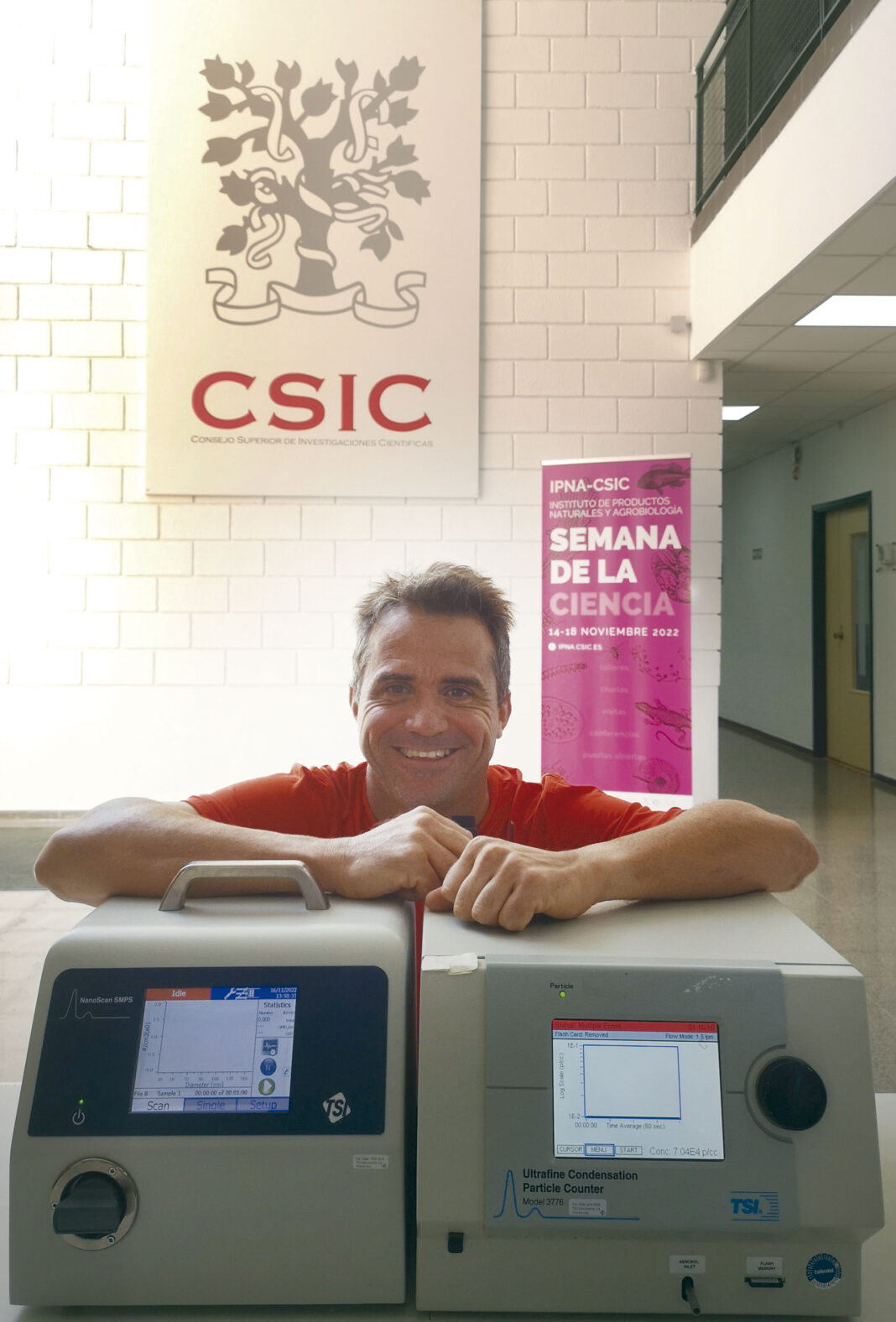Always in tune with the natural world, his determination, tenacity and observant nature have contributed to his brilliant scientific career
Sergio Rodríguez is a researcher at the Spanish National Research Council (CSIC) where he studies the composition of the atmosphere, air quality and climate. Born into a family that worked in Lanzarote’s tourism sector, he grew up in Puerto del Carmen at a time when the only hotels on the Avenida were the Fariones Hotel, the San Antonio and little else. ‘I grew up playing on the coast and in the countryside, fishing for cuttlefish and octopus with my landline and hunting partridges with my father. As a child, I was fascinated by different phenomena like the horseshoe-shaped volcanoes that had been opened to the north by the trade winds, the ground swell formed at sea when there was calima in the air and the insects this would carry all the way from the Sahara.’
‘I went to primary school in Tías and did my secondary education in San Bartolomé and Yaiza, where I have fond memories of my mathematics and physics teachers. In the afternoons, I would cycle to English classes from Puerto del Carmen to Tías.’ He went on to study Physics at the University of La Laguna in Tenerife, where he started researching atmospheric physics with the Izaña Atmospheric Observatory. ‘Back in 1998, the Lanzarote Cabildo awarded me a grant to carry out my postgraduate studies.’ After doing his doctoral thesis at the CSIC Institute in Barcelona, his career took him overseas. ‘I have worked in the Climate Change Unit at the European Commission’s Joint Research Centre in Italy; the Natural Environment Research Council in the United Kingdom and I’ve developed several research and training projects with the World Meteorological Organisation in Turkey, Egypt, Iran, Jordan, Morocco, Bolivia, Guatemala and Cape Verde.’
Back in the Canary Islands, Sergio Rodríguez became a researcher for the State Meteorological Agency at the Izaña Atmospheric Research Centre in Tenerife, where he designed and developed its research programme to study the impact of aerosols on the climate.
He is currently a senior scientist at the CSIC in Tenerife (ipna.csic.es), where he continues his research and has an advisory role at the Ministry of Ecological Transition, the State Meteorological Agency and the Canarian Government on monitoring air quality. His work was particularly intense during the eruption in La Palma. ‘I’ve never truly left Lanzarote. I work a lot from Puerto del Carmen, where my son and parents still live.’





